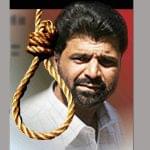More on Indian Minorities
Akshardham temple terrorist attack case of 2002

New Delhi:
Supreme Court acquitted all six persons convicted in the infamous Akshardham temple terrorist attack case of 2002 and pulled up the Gujarat police for its poor investigation.
In its verdict delivered on Friday, May 16, 2014, when India witnessed one of the biggest churning in Indian politics with the BJP getting a complete majority on its own and Narendra Modi declared as the undisputed leader of Indian democracy, a three-judge bench expressed its “anguish” over “the incompetence with which the investigating agencies had conducted the investigation of the case of such a grievous nature, involving the integrity and security of the nation.”
The court said “Instead of booking the real culprits responsible for taking so many precious lives, the police caught innocent people and imposed grievous charges against them which resulted in their conviction and subsequent sentencing.”
“We intend to take note of the perversity in conducting this case at various stages, right from the investigation level to the granting of sanction by the state government to prosecute the accused persons under POTA ( Prevention of Terrorist Act 2002), the conviction and awarding of sentence. We, being the apex court, cannot afford to sit with folded hands when such gross violation of fundamental rights and basic human rights of the citizens of this country is presented before us,” the SC said in its order.
Supreme Court questioned the prosecution’s “case of conspiracy” created on the basis of “confessions of the convicts”. It found them “highly contradictory and improbable in nature” that could not withstand the chain of events. The cops had mainly built the case based on the two letters written in Urdu and recovered from the bodies of the two terrorists. The court chided the cops mainly for not following proper procedure in investigating the two Urdu letters.
The prosecution could not establish that NSG Brigadier Raj Sithapathi had signed the letters while handing them over to the police investigators, nor that the cops had even recorded Sithapathi and Major Jaydeep Lamba’s statements. This had disqualified them as witnesses, said defence lawyer Ejaz Qureshi.
“It would mean that no signature was made on the back of the letters, and that the letters seized were not kept in sealed covers which increased the chances of letters being replaced subsequently,” the court said about the unsoiled letters recovered from the body of the fidayeens whose clothes were soiled with blood and mud, and had tears and holes made by bullets. Lastly, the apex court criticized D G Vanzara and his team, particularly then ACP G L Singhal, for their miraculous cracking of the case within hours. The accused had already been taken into detention illegally much before the investigation was handed over to the crime branch.
